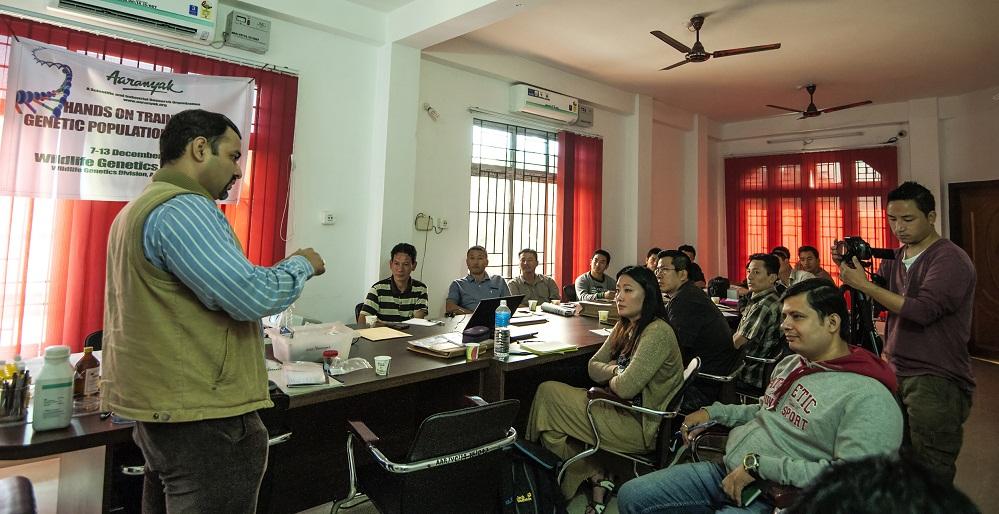Can genetic research be used to protect wildlife? Aaranyak, a Scientific and Industrial Research Organisation based at Guwahati, has proven that the answer is a resounding ‘Yes’. After breaking new grounds in conservation efforts in Assam, Aaranyak has now reached out to neighbouring country Bhutan.
Bhutan shares a common border with Assam along with a portion of the state’s Manas Tiger Reserve. In a bid to further strengthen conservation activities among both countries, 13 officers of Department of Forests and Park Services from Bhutan have participated in a special capacity building training on application of genetic techniques for wildlife population monitoring, in Guwahati, from 7th to 13th December 2015. The training titled “Hands on training on genetic population estimation" covers various aspects of application of genetic tools for population monitoring, such as study design, development of sampling strategies, various molecular biology laboratory techniques and statistical data analysis. The training is being organized by Aaranyak’s Wildlife Genetics Division and sponsored by the Government of Bhutan.
“The training is informative and hands-on. It has given much needed impetus for us to plan and carry out national Elephant survey using genetic sampling method,” commented a senior Forestry Officer, Royal Manas National Park, Bhutan.
Wildlife Genetic Research has recently been taking major leaps in India, with Aaranyak taking a pioneering step in the direction in North East India. Application of genetic techniques for wildlife conservation is a relatively new concept, which Aaranyak is pushing forward in India as well as in other countries like Bhutan and Indonesia. Udayan Borthakur, Head of Wildlife Genetics Division at Aaranyak said, “This training will help the officers in planning for undertaking advanced genetic research for conservation of various threatened wildlife species in Bhutan and also strengthen trans-boundary monitoring of various species between India and Bhutan.”
The Wildlife Genetics Laboratory of Aaranyak is a state of the art facility situated in Guwahati and has been undertaking genetic research on various threatened wildlife species for past several years. The laboratory has been working in India as well as providing support to other countries such as Bhutan and Indonesia in application of genetic techniques for research and conservation of wildlife species. It has carried out conservation genetic research work on species such as tiger, leopard and elephants in India, Javan and Sumatran rhinos in Indonesia and White-bellied Heron and snow-leopard in Bhutan.
It is worth mentioning that during 2011-13, the laboratory had undertaken similar capacity building efforts for the researchers of Indonesia, enabling them to undertake genetic research on Critically Endangered Javan and Sumatran rhinos in the country.
- 9545 reads










Add new comment